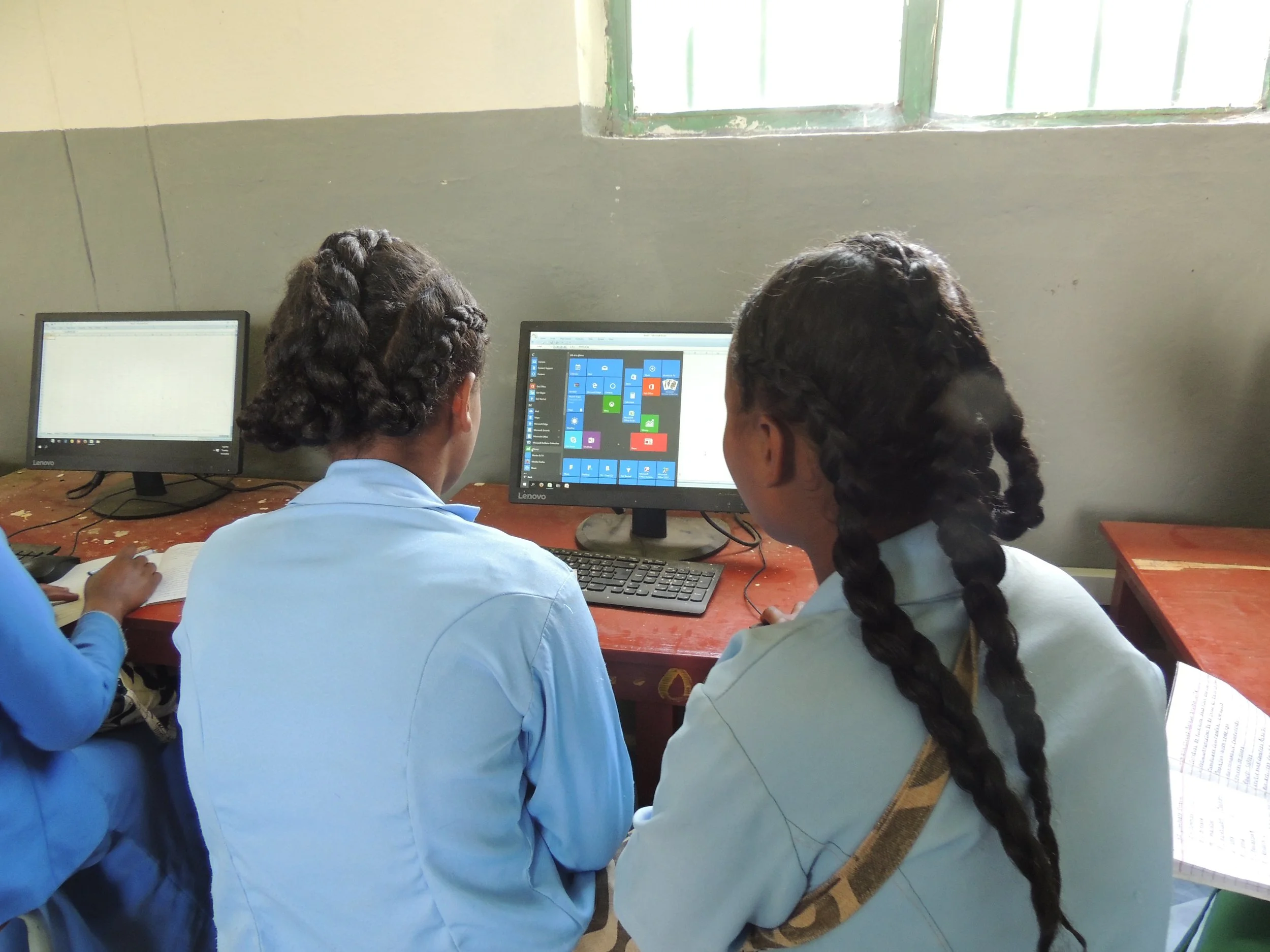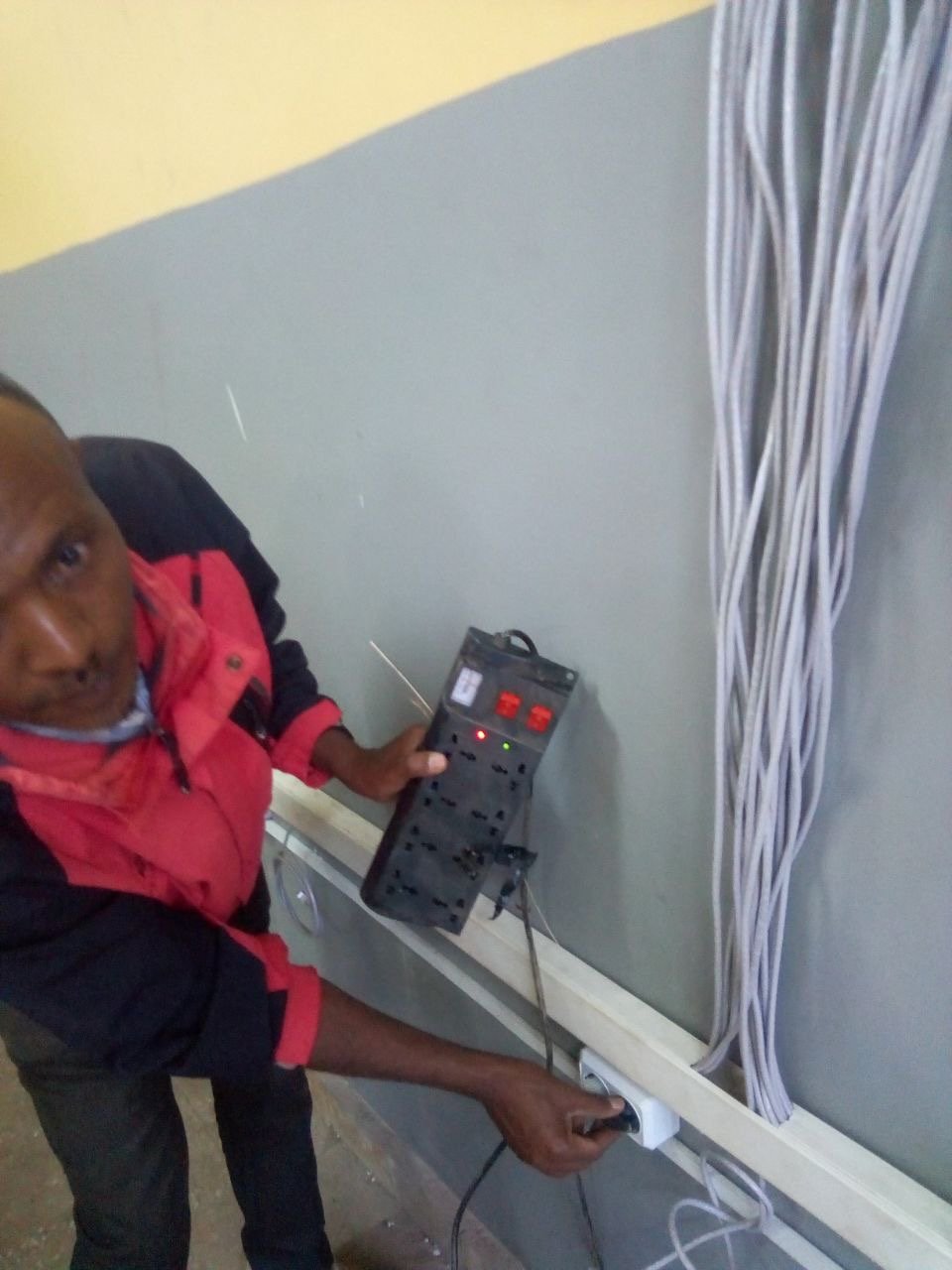
Bridging the digital learning gap
Public schools in Ethiopia — including our project schools — serve children from low-income families and charge no tuition. Yet, 80% of these schools lack digital connectivity, devices, and trained staff, leaving students without access to remote or technology-enhanced education.
Private schools, by contrast, offer digital learning to wealthier families who can afford both school fees and home internet. This growing digital divide deepens inequality and limits opportunity for millions of children.
When schools close, learning stops
Each year, millions of Ethiopian students miss school due to conflict, natural disasters, or public health crises.
During COVID-19, 26 million students lost more than seven months of learning.
In Partners’s operational area — the Amhara National Regional State (ANRS) — over 4.1 million children were affected by local security issues, and 4,178 schools remained closed for the entire 2023/24 academic year.
While lack of connectivity doesn’t prevent enrollment, it prevents continuity of learning, especially during closures. The consequences are stark:
70% of Grade 2 students could not read a single word in their mother tongue (EGRA, 2021).
Of 900,000 Grade 12 students who sat for Ethiopia’s 2023 national exam, only 3.2% achieved a passing score — almost all from private schools.
Closing the gap through technology
Recognizing this urgent need, Partners launched a digital learning initiative with support from the Internet Society, Compassionate Eye Foundation, Bahir Dar University (BDU), and the ANRS Bureau of Education (BoE).
The program aims to transform education for disadvantaged students by:
Providing free, year-round access to curriculum-aligned multimedia content.
Offering interactive and personalized learning opportunities.
Enhancing teaching quality through digital training and remote coaching for teachers.
Improving learning and wellbeing outcomes through data-driven analysis and intervention.
How it works
A joint team from Partners, BDU, and BoE is customizing eLearning (ELMS) and Student Information Management (SIMS) systems that integrate multimedia content aligned with national learning goals.
The systems are being piloted in 23 schools, each equipped with a digital learning hub offering electricity, devices, and internet access.
Five hubs have already been established.
Both teachers and students will receive training to effectively use the new platforms.
The ELMS and SIMS will run on a dedicated cloud server, with a three-year pilot to refine user experience.
A replication toolkit will be developed for scaling across ANRS and beyond.
These hubs allow students to learn at their own pace — both at school and on mobile devices at home — while teachers access training, resources, and real-time feedback.
Beyond school hours, these facilities will support professional development for education specialists, digital and financial literacy training for out-of-school youth, and district-wide teacher capacity building using online collaboration with national and international experts.






